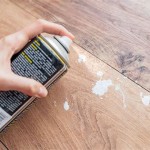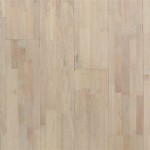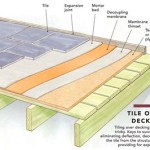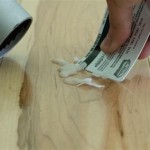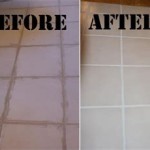Is Vinyl Plank Flooring Good for Bathrooms?
Vinyl plank flooring is a popular choice for use in bathrooms due to its many benefits, including its durability, ease of maintenance, and affordability. However, it's important to understand the pros and cons of using vinyl plank flooring in bathrooms before making a decision.
Pros of Using Vinyl Plank Flooring in Bathrooms
Durability: Vinyl plank flooring is very durable and can withstand the moisture and humidity of bathrooms. It is also resistant to scratches and dents, making it a good choice for high-traffic areas.
Easy Maintenance: Vinyl plank flooring is easy to clean and maintain. It can be swept, mopped, or vacuumed, and it does not require any special cleaning products.
Affordability: Vinyl plank flooring is a relatively affordable option for bathroom flooring. It is less expensive than other options, such as tile or hardwood, but it still provides a stylish and durable finish.
Waterproof: Some vinyl plank flooring options are waterproof, which means they can be installed in areas that are prone to moisture, such as showers and bathrooms.
Cons of Using Vinyl Plank Flooring in Bathrooms
Can Be Slippery: Vinyl plank flooring can be slippery when wet, so it is important to use a non-slip mat in areas where people are likely to get wet.
Can Be Difficult to Install: Vinyl plank flooring can be difficult to install, so it is important to hire a professional if you are not comfortable installing it yourself.
Not As Durable As Tile: Vinyl plank flooring is not as durable as tile, so it may not be the best choice for bathrooms that are heavily used.
Factors to Consider When Choosing Vinyl Plank Flooring for Bathrooms
When choosing vinyl plank flooring for bathrooms, there are several factors to consider, including:
- Material: Vinyl plank flooring is made from different materials, including PVC, LVT, and WPC. PVC is the most common and least expensive type of vinyl plank flooring, but it is also the least durable. LVT and WPC are more durable than PVC, but they are also more expensive.
- Thickness: The thickness of vinyl plank flooring ranges from 2mm to 8mm. Thicker flooring is more durable and can withstand more wear and tear. However, it is also more expensive.
- Wear Layer: The wear layer is the top layer of vinyl plank flooring that protects it from scratches and dents. A thicker wear layer will provide better protection, but it will also increase the cost of the flooring.
- Style: Vinyl plank flooring comes in a variety of styles, including wood-look, stone-look, and tile-look. Choose a style that complements the décor of your bathroom.
Conclusion
Vinyl plank flooring is a good choice for bathrooms that are not heavily used. It is durable, easy to maintain, and affordable. However, it is important to consider the factors mentioned above when choosing vinyl plank flooring for your bathroom.

Vinyl Planks In Bathrooms Residential Inspiration Flooring

Dos And Don Ts For Installing Vinyl Plank Floors In The Bathroom Advice Homeowners

Bathroom Flooring Pros And Cons

Best Vinyl Flooring For Bathrooms

Installing Vinyl Plank Flooring Lifeproof Waterproof Rigid Core Sustain My Craft Habit

Can Vinyl Flooring Be Used In A Bathroom Hallmark Floors

Is Vinyl Plank Flooring Waterproof Twenty Oak

Luxury Vinyl Plank Pros And Cons Bathroom Edition Penny Modern

How To Install Vinyl Plank Flooring In A Bathroom Fixthisbuildthat

Upstairs Full Bath
See Also

